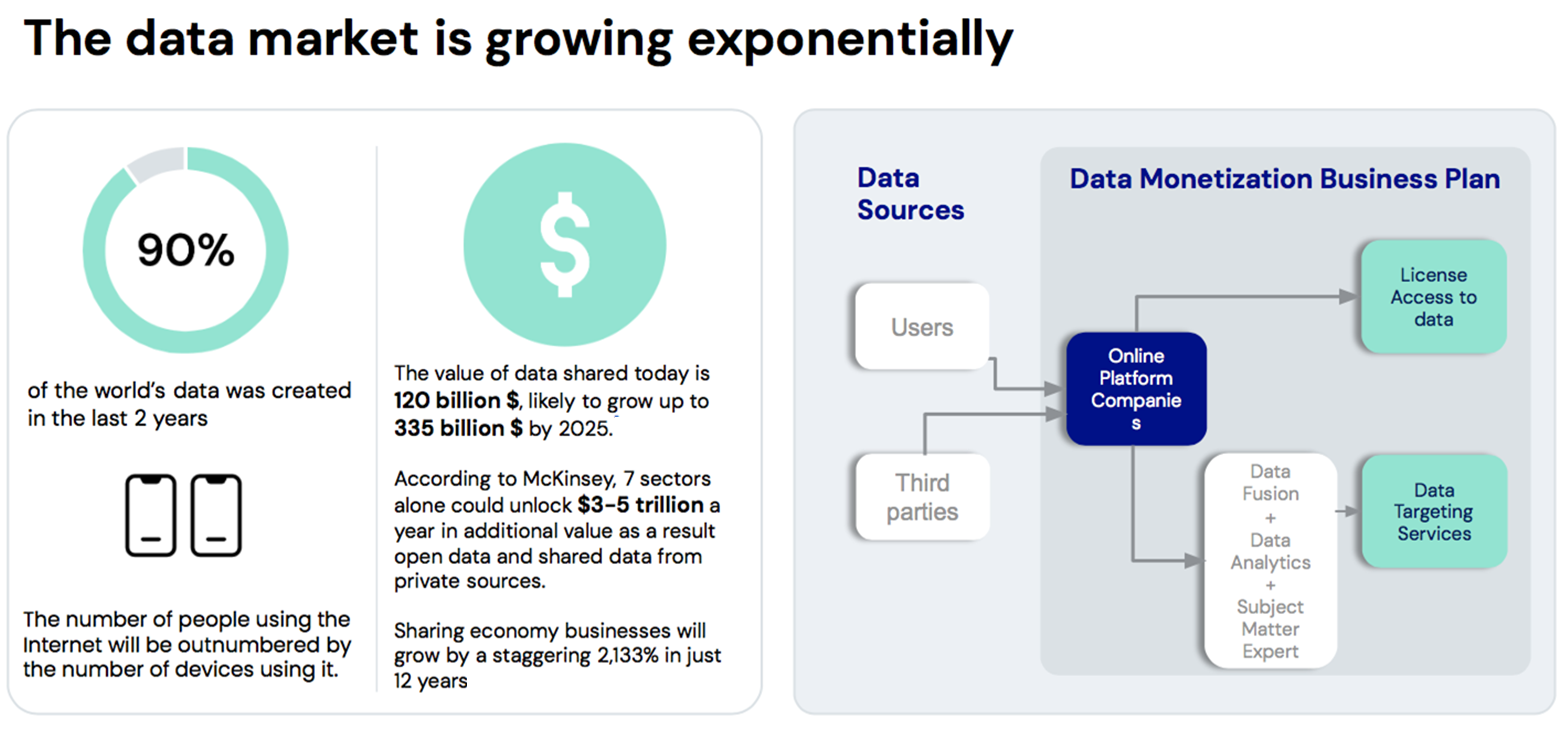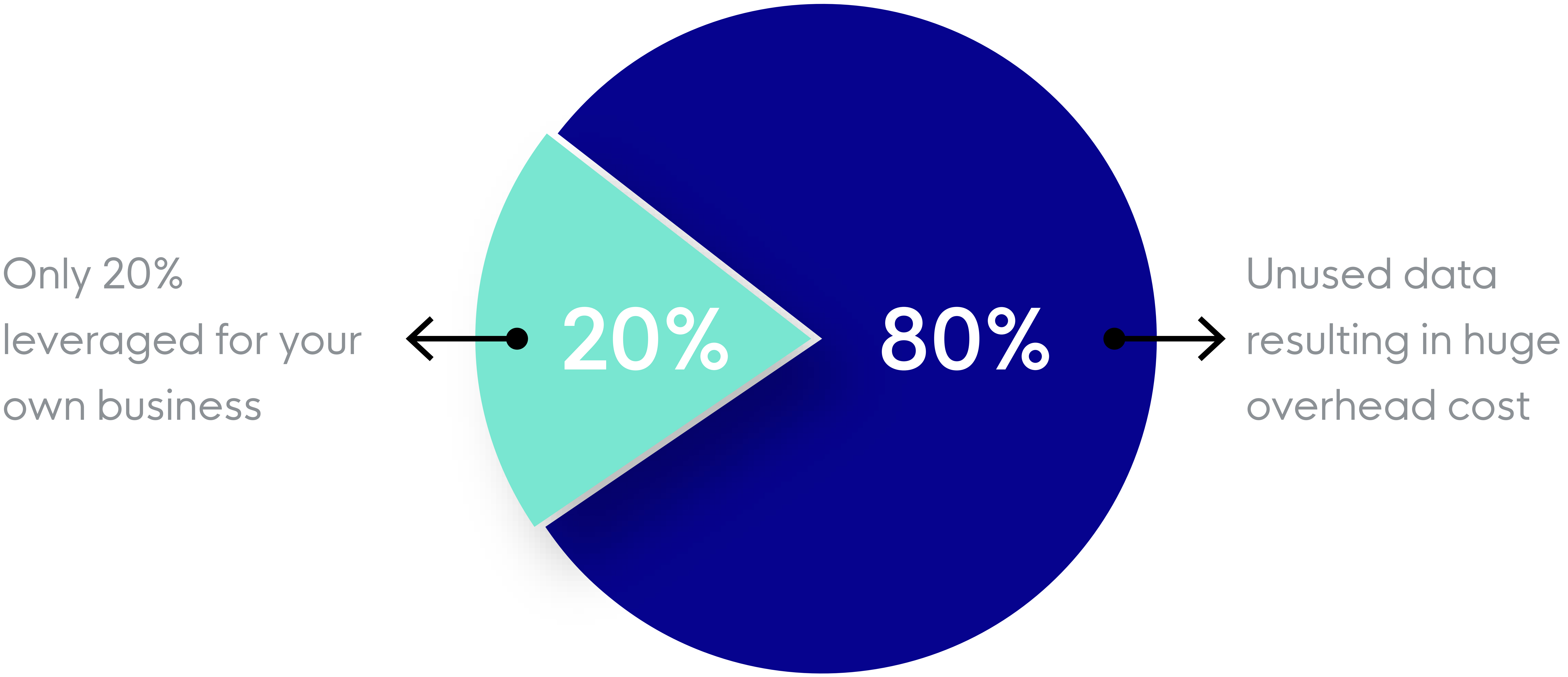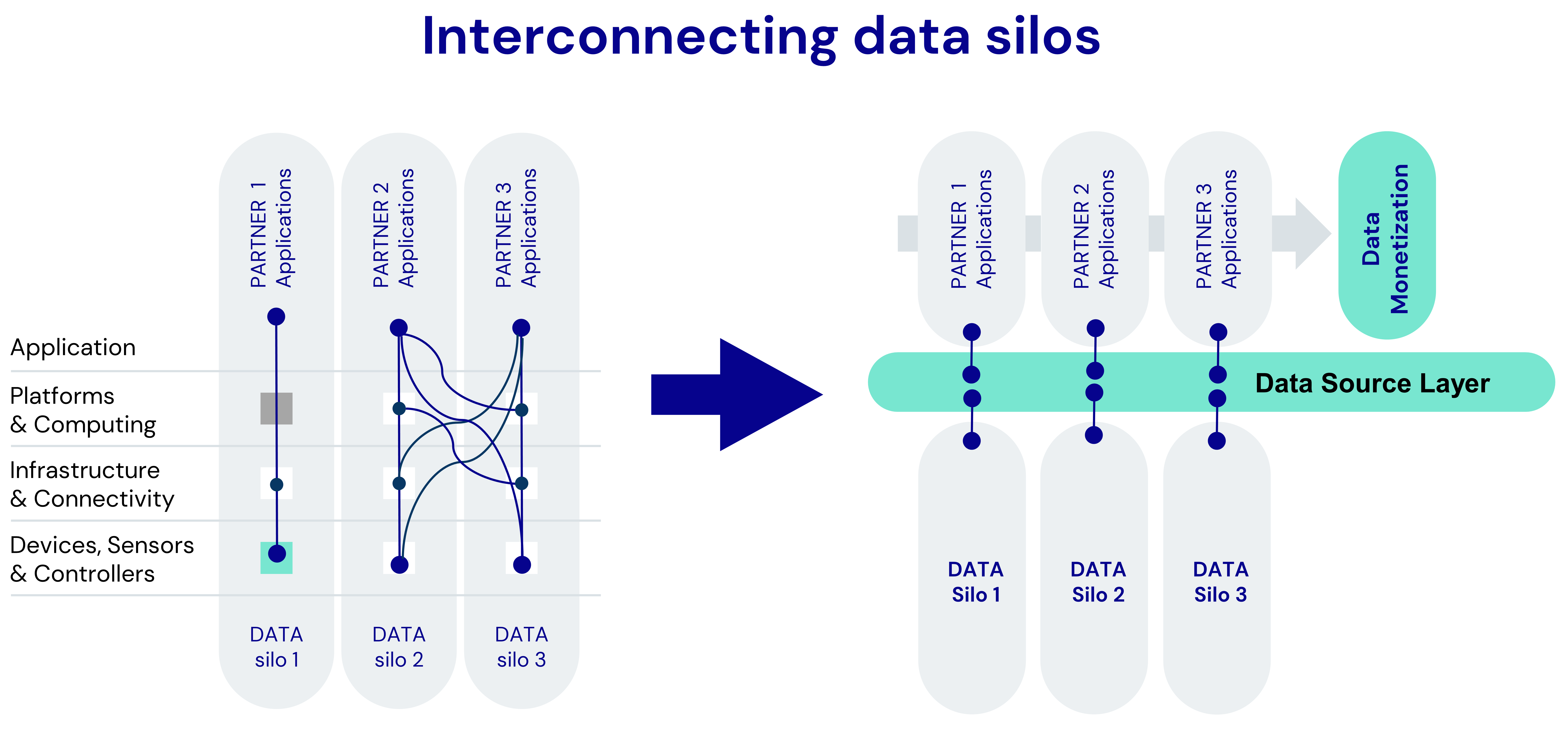Documentation
Data is an increasingly valuable asset because it drives powerful insights in a wide range of applications. However, some participants in the data economy are data rich, while others are data poor. The ability to exchange data assets bridges the gap between data rich and data poor participants. In so doing, it enhances and expands the applications of data, increasing the value and utility of this asset for all. Therefore, robust marketplaces for data can be considered essential infrastructure for the still nascent but rapidly growing data economy. Unfortunately, technological hurdles have until now largely prevented the growth and adoption of data marketplaces and led to an increasing divide between the data rich and the data poor. As a result, organizations have been hard pressed to find the quality data they need to unlock valuable insights. Potential growth of the data economy is thus stifled by legacy inefficiencies.

DataBroker is a blockchain-supported decentralised marketplace for data where buyers and sellers exchange data on a peer-to-peer basis. It overcomes key technological barriers to create an open, secure, transparent, and efficient marketplace for data. By providing critical infrastructure for the emerging data economy, DataBroker bolsters the growth of the data economy while also positioning itself as a major vector for value accrual within it.
Data economy consist of “data providers” and “data users.” Data providers are defined as “organisations that have as their main activity the production and delivery of digital data-related products, services, and technologies.” They represent the supply side of the data market. Data users are defined as “organisations that collect, utilize and analyse digital data intensively and use what they learn to improve their products or business.” They represent the demand side of the data market. The “data market” is defined as the marketplace where digital data is exchanged as products or services as a result of elaboration of raw data. The growth of the data economy is currently restricted by the difficulty and risks of exchanging data using status quo tools and methodologies. As a result, most data exchange still occurs through bilateral relationships that must be individually negotiated (at significant cost). When creating a data-sharing partnership with another organization, it typically takes from 12 to 18 months to agree on technology, contracts, and methodologies. Also, a significant amount of data exchange happens through illegal or non-standard means where data owner’s consent is not available for the consumption of data or the data is leaked somewhere.

Research and analytics are key use-cases for various data sets, and for the results to be meaningful and accurate, it is of critical importance that the data being fed into the system is authentic, accurate, and made available in an agreed time frame. A related factor preventing the growth of public data exchange marketplaces is the reliance on third-party centralized data warehousing infrastructure to facilitate the exchange of data. Use of such services creates security concerns as well as various issues related to compliance and data privacy regulations. Many organisations are simply unable to engage in data exchange using these third- party infrastructures because they do not meet compliance regimes or the organisations just do not trust them. In many cases, the use of such infrastructure - where servers are located in a different region than the organisation - would mean sensitive data is exposed to a different region’s legislation. Reliance on a third-party dedicated infrastructure also exposes organisations to the risk of dependency on a few monopolistic data aggregators or warehouses. This not only introduces issues relating to lack of data control, it also brings potential lock-in effects and their associated economic costs.

There is also a discoverability problem. With most data stored in a siloed manner, and without a way for organisations to efficiently find the data they need, the vast majority of potentially valuable data exchange opportunities go unmet. Another key challenge preventing the growth of data exchange is the lack of transparent options for incentivising data exchange. With exchange mostly restricted to bilateral deals that take months to negotiate, most organisations lack the incentive to make their data available. The problems associated with the absence of effective incentivisation mechanisms is evidenced by the difficulties observed in establishing enduring open data initiatives.
The idea behind DataBroker originated in late 2016. The concept was developed together with the largest telecommunications operator in Belgium, Proximus. The first iteration of the platform was the output of a joint research project. Proximus sought an answer to the question, “Can we provide our industrial IoT clients with a possible revenue stream for the data that they are generating?” The output of this first exploration was a minimum viable product called “DataBroker DAO” which was showcased at the Blockchain Expo in London, England on the 23-24 of January 2017 where DataBroker’s founder and CEO, Matthew Van Niekerk gave a presentation and live demo of the platform to an audience of 1500 blockchain enthusiasts.
The founders set out to build the next generation of DataBroker DAO called “DataBroker” as a platform and ecosystem because:
- world is producing and consuming large amount of useful data, but needs a structured platform for secure data exchange.
- there is a lack of suitable options for securely exchanging and monetising data in the status quo
- there is already a huge data market to capture next to IoT
- the team’s initial MVP received a great deal of attention despite its relative simplicity
- a decentralised infrastructure that integrates data discovery capacity and incentive mechanisms can trigger an explosion in the exchange of data and by extension the utility of data.
Conceptualized as a marketplace for IoT sensor data, today, DataBroker is both a sensor data marketplace. a business data marketplace. It enables the secure exchange of data in a wide variety of forms such as MQTT Data Streams, API Streams and all kind of files. With that ability, it offers data providers the opportunity to develop new services, create new business models, and monetise to their data assets.
To know more about DataBroker, please go through the Documentation available on the platform, or Get in Touch to setup a discovery session with one of our on-boarding specialists.










